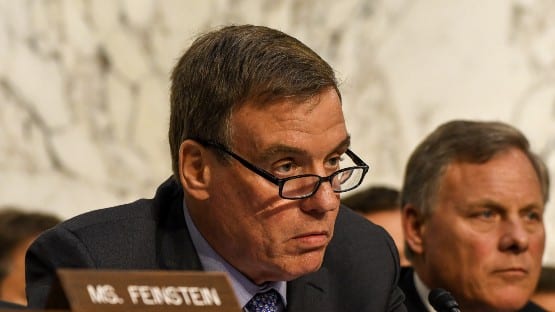
Just yesterday, the U.S. Environmental Protection Agency, an official “cooperating agency” during the project review, filed its comments with FERC, finding the environmental review “incomplete” and “insufficient,” and said there are hazards that “have not been not fully assessed.”
The proposed pipeline passes through important habitat in the Jefferson National Forest and would have devastating impacts on the New River Valley and surrounding areas. There are many substantial deficiencies in the DEIS that must be corrected through the issuance of a completely revised DEIS, including the failure to fully evaluate the need for the MVP and the failure to fully evaluate the impacts to water resources, wetlands, cultural resources, threatened and endangered species, and climate change implications. Correcting these deficiencies will require significant new analysis and the incorporation of high quality and accurate information regarding MVP impacts.
Legal and environmental experts have filed review comments of the nearly 2,600-page document that identified major gaps in FERC’s analysis, including:
-
Failure to identify, consider, and analyze all reasonable alternatives. The DEIS fails to consider alternative routes and options, including a “no action” alternative, as required by the National Environmental Protection Act. The Council on Environmental Quality refers to the alternatives analysis section as the “heart of the EIS.”
-
Failure to consider climate change impacts. FERC does not analyze the significance of the total annual greenhouse gas emissions in any meaningful way.
-
Failure to address the need for the MVP. Despite the clear requirement to discuss the need for the MVP project in the DEIS, FERC says that it will not address project need until after the environmental analysis is over.
-
Failure to provide adequate environmental information. The DEIS lacks sufficient information about the MVP and its potential environmental impacts on a wide variety of resources, including water resources, wetlands, cultural resources, threatened and endangered species, and climate change implications.
Comments
David Sligh, Conservation Director, Wild Virginia
“FERC must revise the draft EIS to correct gross deficiencies in information and flawed analyses. Wild Virginia calls on the federal Bureau of Land Management and the U.S. Forest Service to insist on a new and adequate DEIS from FERC, or to fulfill their legal duties and prepare their own.”
Ben Luckett, Senior Attorney, Appalachian Mountain Advocates
“We’re shocked the FERC has continued to disregard its federal duties and fast track this project — especially given major gaps in the agency’s understanding of the pipeline’s impacts, as well as any need for it in the first place. FERC has the extraordinary power to allow MVP to take private property for its shareholders’ own private gain. Just because the job of evaluating the impacts of such a massive project is difficult doesn’t mean that FERC may cut corners and ignore its important duty to the public. FERC should not proceed forward, sacrificing family land and other private property, without fully analyzing this destructive and unnecessary pipeline.”
Lara Mack, Virginia Field Organizer, Appalachian Voices
“FERC woefully underestimated the impacts the Mountain Valley Pipeline will have on the Appalachian mountains, wildlife habitat, water resources, and communities. If FERC did it’s job correctly, with the public interest in mind, it would see this project for what it is — a dangerous boondoggle.”
Andrew Downs, Regional Director, Appalachian Trail Conservancy
“Through a deficient level of planning and environmental impact assessment, the MVP project represents a threat not only to the purpose and values of the Appalachian National Scenic Trail but, by undermining the United States Forest Services’ protection of the AT, it represents a fundamental and existential threat to the entire National Trails System”
Anne Havemann, General Counsel, Chesapeake Climate Action Network, 240-396-1984, [email protected]
“FERC’s draft environmental review utterly ignores the pipeline’s full impacts on the climate. The limited–and opaque–review fails to fully account for methane pollution from increased fracking that the pipeline would trigger, from leakage along the route, and from the ultimate burning of the gas. The pipeline would fail the White House’s climate test. FERC must revise its review to include the pipeline’s full lifecycle of climate pollution, and consider clean energy alternatives.”
Laurie Ardison, POWHR Co-Chair, Monroe County, WV, and Ellen Darden, POWHR Co-Chair, Montgomery County, Va.
“The people of Appalachia stand united in an unprecedented interstate coalition: Protect Our Water, Heritage, Rights (POWHR), to make clear to the Federal Energy Regulatory Commission, the United States Forest Service, the US Army Corp of Engineers, US Fish and Wildlife Service and the Bureau of Land Management that Mountain Valley Pipeline has failed to establish a need for this destructive project. FERC’s DEIS summarily ignores the detailed, credentialed hydrogeologic, economic, historical preservation and cultural attachment research submitted by the POWHR coalition and hundreds of landowners opposed to MVP. Rather than interfering and obstructing public opposition to MVP, FERC must review the entire body of scientific research submitted and reject this project.”
Kirk A Bowers, PE, Pipelines Campaign Coordinator, VA Chapter, Sierra Club
“The Draft EIS is blatantly biased. It makes sweeping unsubstantiated claims of the need for the pipeline while dismissing any and all potential adverse effects. The applicant provides cursory responses to data requests in a perfunctory manner without analyses or serious consideration of the adverse effects of the proposed pipeline. The applicant has failed to make reasonable efforts to avoid and minimize adverse effects on communities, landowners and ecosystems impacted by the proposed pipeline. In light of the incompetent and unprofessional manner in which the application has been handled by MVP LLC, it is incumbent on FERC to reject the application.”










